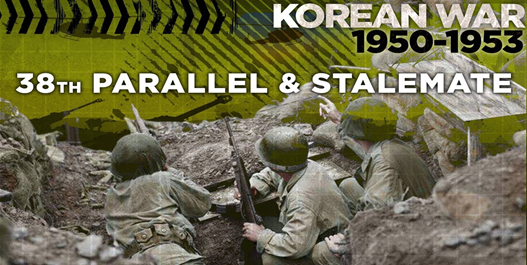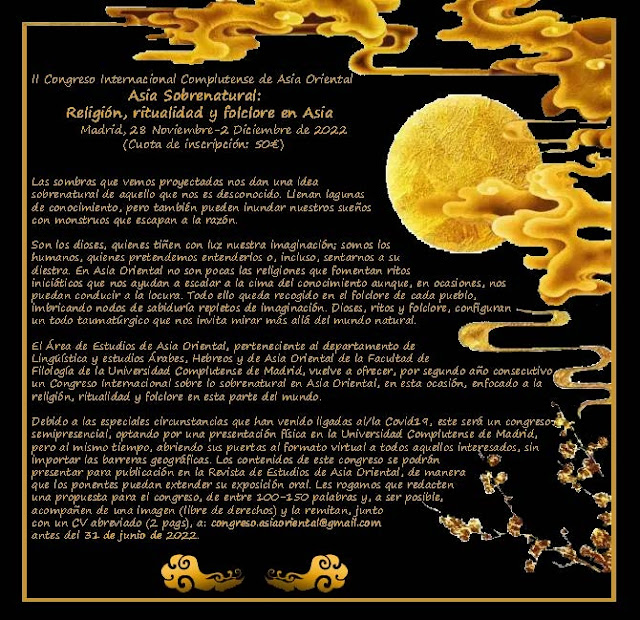Call for Chapters for a Collective Publication:
Peace & the Management of Religious and Ethnic Pluralism in Asia
In his quest to elevate his fields of expression, mankind adopts various paths that reflect his visions and his philosophy and through which he strives to give distinctive and specific characteristics to his movement in time/history and place/geography. These characteristics are essentially intertwined with the roles associated with individuals, societies and nations and the human relations between and among them. These relations are renewed and transformed based on the shifts in the collective needs and interests during different stages of civilizational advancement.
Our contemporary world is witnessing developments and transformations that express a new phase of human history, a phase which reformulates many of the statements and visions that founded human actions and experiences in the arenas of cultural, religious, economic, political, and strategic advancements. Every civilization and nation seek to be in a position of influence in one or some of these arenas, or all of them. For this purpose, each nation mobilizes its capacities, capabilities, and heritage, so that it does not find itself on the sidelines of contemporary transformations.
In fact, our contemporary world offers new opportunities for interaction between and among civilizations and nations which adds a new brick in the common human edifice. But at the same time, some developments and events in our contemporary reality have unfortunately led to the emergence of conflict and negative competition. The rising conflicts may destroy the lasting efforts that worked to build the common human edifice of many generations across multiple centuries.
Pluralism and diversity are a fixed and an undeniable religious, cultural, and ethnic reality in our world. For as long as this is the case, it is the ethical responsibility of members of different religions and of different cultures and races, to build creative ways in managing this diversity, in order to prevent or resolve conflicts of all kinds. When observing global geography in general and the geography of Muslim settlement, we find elements of commonalities between Muslim communities and others. These commonalities differ in their form and content depending on the historical and civilizational circumstances of each community and the cross-cultural impact and influence among them.
The Asian continent constitutes the most rich and diverse geographical area for Muslims in view of the global demographic map, and this geographical area is a key determinant for measuring global power balances and their future developments. This is particularly relevant with the multidimensional rise of China and India on cultural, economic, political, and strategic grounds. In other words, world peace depends greatly on stability in Asia whereas the possibilities of cooperation and/or conflict within the continent can easily migrate to other regions of the world, whether in Africa, the Arab region, Europe, or the American continent.
The current realities of Muslims and their future in Asia cannot be separated from the historical formation of other nations and other religions and civilizations in the region, such as Buddhism, Confucianism, Hinduism, Christianity, and others. Given the diversity of racial and linguistic identities of Muslims in the region, it is only natural that Muslims hold many commonalities with people of similar race -albeit being of different religious backgrounds- since Muslims form a big part of the ethnic map of neighboring religions and philosophies. For example, across the tribes of Central Asia, Tibet, and China there is a significant number of followers of the Buddhist religion and within the same community many follow the religion of Islam, Confucianism or Hinduism. The different historical and geographical contexts in which communities in Asia have developed has also caused differentiation lines within followers of the same religion. This differentiation and division can also be explained in terms of the efforts of different ethnic and religious groups to achieve their water security, food security, and energy security.
Religious considerations are not the main or the only factor in the outbreak of conflicts, whether in Asia or other regions of the world, but religion is sometimes used to achieve other goals. Therefore, it is necessary to search for the specifics of each crisis in Asia and to look at it in its political, socio-historical, and socio-economic contexts, with its impact within and beyond the countries of conflict.
Within this framing vision,
Al-Hokama Center for Peace Research launched the project of “
Studies on Civil Peace in Asia” with the aim of tracing the roots of erupting or expected crises in Asia. The program is foregrounded in an approach that aims to build a theoretical vision about the religious and socio-economic transformations and interactions that are either a cause of conflicts or the basis for peace and coexistence in Asia. The program takes into account the factors of time /history and place / geography in tracking these transformations, not only in order to understand the ongoing conflicts in the regions of Asia, but also to monitor and foresee the factors that may lead to the emergence of new conflicts in the future.
The research axe “Studies on Civil Peace in Asia” within the Asian Studies Project seeks to publish a collective publication titled: Peace & the Management of Religious and Ethnic Pluralism in Asia. The book project stems from a philosophy which centers the material and moral dimensions of human survival to prevent violence, aggression, and the human right to life. In other words, dismissing these dimensions inevitably leads to the spread of fear and then unrest and wars. The moral and immaterial existence of the human being is expressed through the cultural, religious, and symbolic affiliations of societies, but these affiliations are in turn subject to a transformation process. These transformations either occur for internal reasons such as the emergence of new interpretations or fundamentals of a single unified identity, or for external reasons, such as cultural clashes or cross-cultural exchanges with other identities. In both cases the constant remains: diversity and pluralism are a prominent feature of human life throughout history, and as long as this truth is absolute and cannot be overridden, it is the ethical responsibility of mankind to preserve this diversity, to wisely manage this pluralism, to ensure a safe and peaceful environment for the exchange among all the cultural, religious and civilizational components of human societies.
The collective publication proposes several themes through which it seeks to study the experiences and challenges of civil peace in different regions of Asia, namely:
I. Indian Subcontinent
1) Peaceful coexistence and religious pluralism in India.
2) Religious and ethnic pluralism in India: Keys to understanding the formation of the self.
3) A Sociological Approach to Islam in Indian Consciousness.
4) Peaceful coexistence and religious and ethnic pluralism in Pakistan.
5) Rebuilding civil peace in a plural society: the case of Sri Lanka.
II. Chinese Region
1) Managing religious and ethnic pluralism in China.
2) China and Islam: Analysis of a specific vision.
3) The religious influence of China in Asia.
III. Central Asia
1) Peace and Religious and Ethnic Diversity in Central Asia.
2) Ethnic and religious pluralism in Uzbekistan.
3) Ethnic and religious diversity in Tajikistan.
4) Ethnic and religious diversity in Afghanistan.
5) Ethnic and religious diversity in Kyrgyzstan.
6) Ethnic and religious diversity in Turkmenistan.
IV. Southeast Asian Region
1) Religious and Ethnic Coexistence in Southeast Asia: The case of Cambodia.
2) The role of Muslims in peaceful coexistence in Thailand.
3) Religious and Ethnic Diversity in Thailand: Possibilities and Challenges.
4) Religious and Ethnic Coexistence in Myanmar: Obstacles and Opportunities.
5) The prospect of religious and ethnic coexistence in the Philippines.
6) Peaceful Coexistence in Singapore: Analysis of Diversity Management
7) The Indonesian Experience in Managing Religious and Ethnic Pluralism.
8) Civil peace in Malaysia and Religious and Ethnic Pluralism.
V. Asia-Pacific Region
1) Interaction of Japanese Religious Consciousness and Islam
2) Managing Religious Pluralism in South Korea.
3) Societal vision of Islam in Korea.
4) Islam and South Korean Elites.
5) The Australian Vision on Religious and Ethnic Pluralism in Asia.
6) The New Zealand Vision on Religious and Ethnic Pluralism in Asia.
VI. A Comparative Approach to the Prospects of Civil Peace in Asia
1) Policies For Managing Diversity in Ethnically and Religiously Diverse Asian Societies
2) Policies for the Inclusion of Ethnic Groups in Decision-Making
3) International Legal Standards for Managing Diversity and Recognition of Pluralism
4) The Roles of Local and International Actors in Diversity Management: A Reading of Asian Experiences
- Interested participants are invited to submit research proposals (approx. 700 words) and a short biography, accompanied by an academic CV, in English or Arabic or French, no later than 10th of May 2022, with acceptance replies within three weeks thereafter.
- All research proposals should include the following sections: the research question(s), a basic hypothesis, the methodological and theoretical frameworks, and approaches/results, with a list of references.
- The paper should bear the following: Title of the Paper, Author(s) Details, Abstract, Keywords, Introduction, Discussion, Conclusion, References.
- Papers can be submitted in Arabic or English or French.
- Researchers whose proposals were approved by the scientific committee should send their complete papers (6000-10000 words), no later than 15 September 2022.
- A specialized organising committee will review the research, and the committee is obligated to inform the researcher of the decision to approve, decline or request any amendment to the paper no later than 30 September 2022.
2.
Selected papers will receive a financial award after publishing, authors of
excellent papers will be invited to attend the International Conference that will be organized in
November 2022 in Rabat (Morocco) to present their papers.
Al-Hokama Center will cover all expenses related to travel, lodgings, and transportation of the selected participants during the conference.
For any further information, please visit our
website or contact the
Coordinator of Asian Studies Program (
Hamza Mrabett) at this email:
H.mrabett@alhokama.com.
Contact Info:
(
Hamza Mrabett)
Asian Studies Program Coordinator at
ALHOKAMA center for peace research
Contact Email: asian.st@alhokama.com













.jpg)


